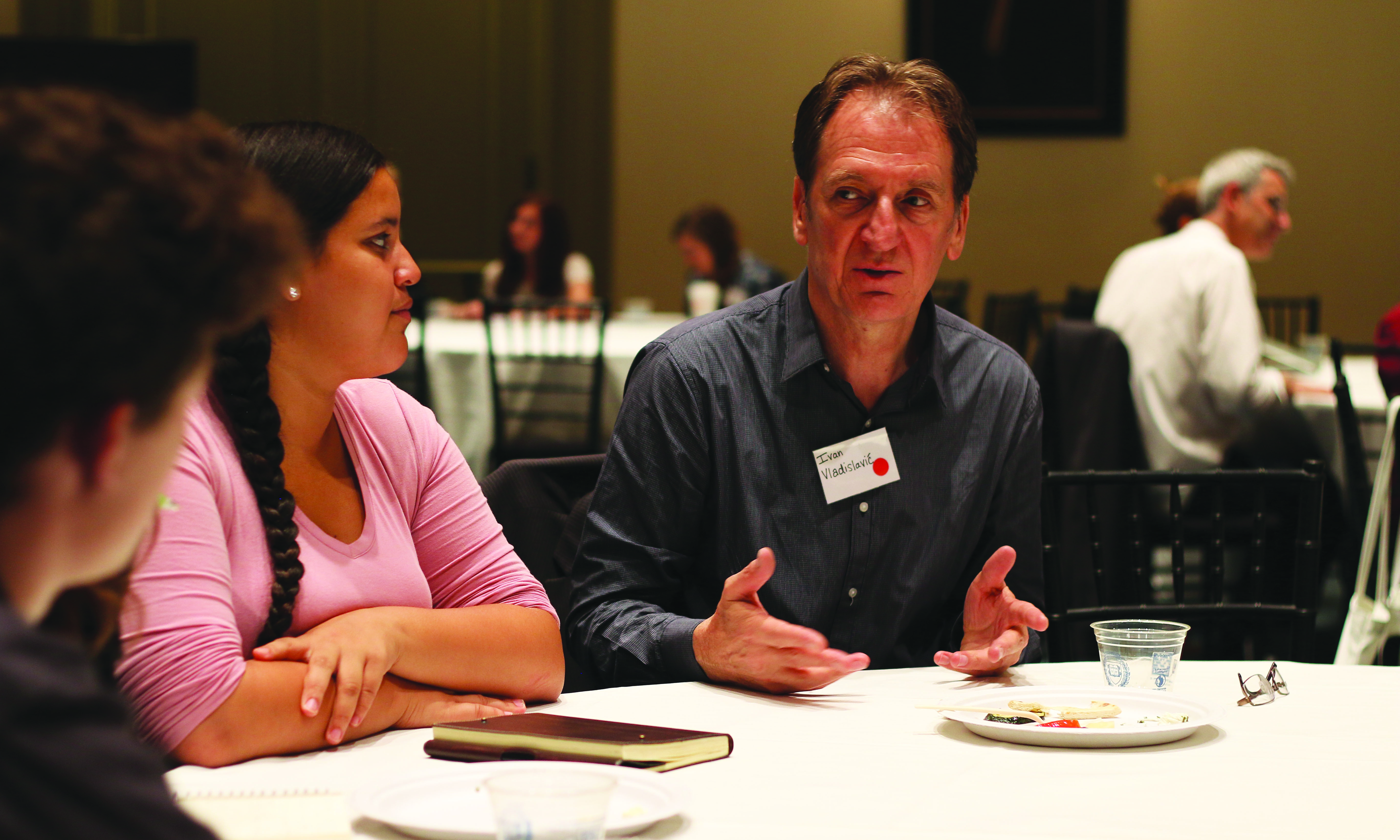
On Monday evening, nine writers from across the globe took the stage at Sprague Memorial Hall to collect their prizes at the third annual Windham-Campbell Literary Festival.
Administered by the Beinecke Rare Book & Manuscript Library, the prizes are awarded to three winners each in fiction, non-fiction and drama categories, and feature an unrestricted grant of $150,000 for each winner. Michael Kelleher, the program’s director, highlighted the festival’s importance for the Yale community.
“[The writers] bring with them their genius and creativity, and it gives students, faculty and community members an opportunity to experience that,” Kelleher said.
In the Prize Ceremony on Monday, a keynote lecture was delivered by Hilton Als, chief theater critic at The New Yorker magazine. The lecture, alongside keynote addresses from past years of the festival, will be featured in a series published by Yale University Press entitled “Why I Write.” Before presenting the awards, University President Peter Salovey welcomed the prizewinners to campus and expressed his excitement to begin the academic year with an international literary festival.
Nonfiction winner Geoff Dyer said that he is looking forward to attendees taking advantage of the breadth of the festival’s offerings.
“What I’m hoping is that a number of people might come to one event, not because they were particularly interested in it, but because they were drawn there from a different event that was part of the festival,” he said.
Dyer noted that he is also grateful the Windham-Campbell Prize recognizes the entirety of his oeuvre — not just one work in particular.
The prizes, administration and promotion of the festival are endowed by Donald Windham and Sandy Campbell, a couple whose papers are housed in the Beinecke.
“It was really a combination of a good relationship with [the Beinecke] and the fact that he felt this amount of money could really only be managed by an institution with a global scope,” Kelleher said, explaining why Windham chose to donate funds for the endowment to Yale.
Although winners can use the prize money for any purpose, Windham wrote in his will that he hoped the money would give authors time to write without worrying about financial constraints.
The nomination process for the Windham-Campbell prizes is yearlong and anonymous.
“Nobody has any idea that they’ve been nominated,” Kelleher said. “We solicit confidential nominations from nominators and ask them not to tell anybody that they’ve done this.” Nominations are then presented to a nine-person selection committee, composed of four individuals named in Windham’s will and five appointed by President Salovey, Kelleher added.
Fiction winner Helon Habila said that he thinks the lack of publicity of the prize-selection process is precisely what makes winning it so rewarding, and noted that writers do not apply or compete for the award.
Stefanie Markovits ’94 GRD ’01, the English Department’s Director of Undergraduate Studies, emphasized the collaboration that occurs during the festival between Yale faculty and the prizewinners, noting that events such as “Art of the Essay” bring professors together with the winning writers to discuss their craft.
“This is a feature of our program that the [English] Department really works to encourage students to take advantage of,” Markovits said. “The experience of literature as a part of public life, as something people actually do.”
Markovits also highlighted the prize’s global nature, noting that it aligns with the department’s goals, which include embracing an international perspective on writing.
Undergraduate students interviewed also expressed excitement about the festival and the possibility to interact with prizewinners.
Erica Wachs ’18, who sat on an undergraduate committee that worked with Kelleher to organize this year’s festival, mentioned that she is especially excited to meet drama winner Helen Edmundson.
“As an aspiring playwright, just to have this opportunity is incredible for me,” Wachs said.
All Windham-Campbell Literary Festival events are free and open to the public.







